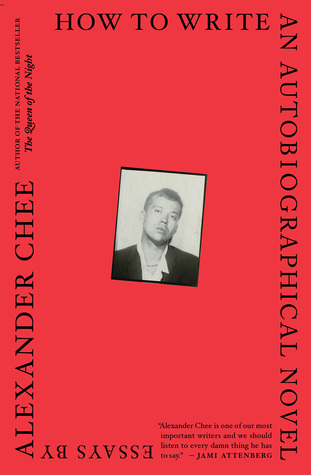On Becoming an American Writer
[...] He had called the station from inside the first tower to describe what was happening. The host quickly thanked him for calling in and then said, in a bit of a panic, Why are you on the phone with me? Why aren't you on your way down?
You don't understand, the man said. The whole center of the building is gone. I can't go down. That's why I'm calling.
I don't know how to describe the feeling I had in the silence that followed, except that it was approximately the length it would take you to read this sentence aloud.
[...] He had called the station from inside the first tower to describe what was happening. The host quickly thanked him for calling in and then said, in a bit of a panic, Why are you on the phone with me? Why aren't you on your way down?
You don't understand, the man said. The whole center of the building is gone. I can't go down. That's why I'm calling.
I don't know how to describe the feeling I had in the silence that followed, except that it was approximately the length it would take you to read this sentence aloud.
samizdat
(en)
the clandestine copying and distribution of literature banned by the state, especially formerly in the communist countries of eastern Europe
The point of writing in the face of the problem was the point of samizdat, readers and writers meeting secretly all across the Soviet Union to share forbidden books
The point of writing in the face of the problem was the point of samizdat, readers and writers meeting secretly all across the Soviet Union to share forbidden books
[...] The point of it is in the possibility of being read by someone who could read it. Who could be changed, out past your imagination's limits. Hannah Arendt has a definition of freedom as being the freedom to imagine that which you cannot yet imagine. The freedom to imagine that as yet unimaginable work in front of others, moving them to still more action you can't imagine, that is the point of writing, to me. You may think it is humility to imagine your work doesn't matter. It isn't. Much the way you don't know what a writer will go on to write, you don't know what a reader, having read you, will do.
[...] The point of it is in the possibility of being read by someone who could read it. Who could be changed, out past your imagination's limits. Hannah Arendt has a definition of freedom as being the freedom to imagine that which you cannot yet imagine. The freedom to imagine that as yet unimaginable work in front of others, moving them to still more action you can't imagine, that is the point of writing, to me. You may think it is humility to imagine your work doesn't matter. It isn't. Much the way you don't know what a writer will go on to write, you don't know what a reader, having read you, will do.
I wanted to lead my students to another world, one where people value writing and art more than war, and yet I knew then and I know now that the only thing that matters is to make that world here. There is no other world. This is the only world we are in. This revisable country, so difficult to change, so easily changed.
I wanted to lead my students to another world, one where people value writing and art more than war, and yet I knew then and I know now that the only thing that matters is to make that world here. There is no other world. This is the only world we are in. This revisable country, so difficult to change, so easily changed.

